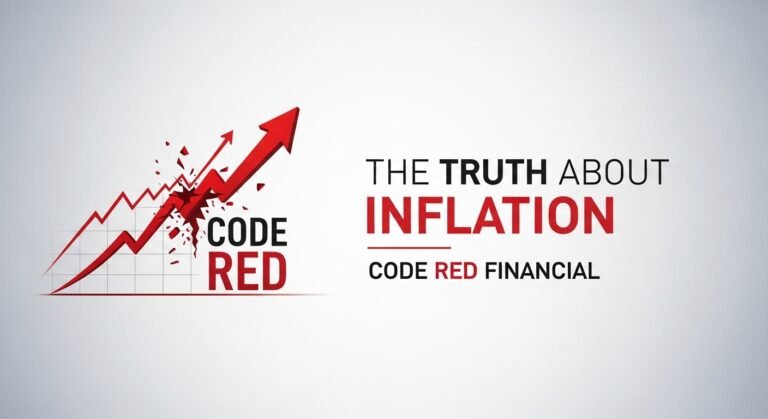Introduction
Writing this article has been a form of personal therapy for me as part of a community often misunderstood by neurotypical minds that struggle to comprehend us, a challenge I’ve faced for most of my life. The numerous failed attempts to conform to an identity that your brain doesn’t resonate with can lead to social awkwardness and anxiety, which is far from ideal. Regardless of political ideology, it is believed that Elon Musk, Bill Gates, and the late Steve Jobs were on the autism spectrum. Therefore, if you are a parent reading this with a child who seems a bit different, consider understanding the reasons before labeling them in any way.
Individuals on the autism spectrum often face unique challenges in traditional work environments, particularly those that demand frequent social interactions. These environments can be overwhelming and stressful, leading to decreased productivity and job satisfaction. The sensory sensitivities and communication differences that many people on the spectrum experience can make it difficult to thrive in settings where social engagement is a constant requirement.
However, it’s crucial to recognize that people with autism possess a range of exceptional skills and talents that can be leveraged in more accommodating work settings. The key lies in identifying job opportunities that align with their strengths while minimizing the need for constant social interaction. Remote work and freelance opportunities have emerged as viable options, offering a more comfortable and controlled environment where individuals can excel without the pressures of traditional workplaces.
The rise of the digital economy has opened up a plethora of avenues for earning an income remotely. This is particularly beneficial for those on the autism spectrum, as it allows them to work from the safety and comfort of their own homes. Remote work options enable individuals to create a structured and predictable work environment, which can significantly enhance their productivity and overall well-being.
Moreover, freelance gigs often provide the flexibility to choose projects that align with one’s interests and expertise. This autonomy can lead to greater job satisfaction and a sense of accomplishment. By focusing on roles that capitalize on their unique strengths, individuals on the autism spectrum can find fulfilling and financially rewarding opportunities that accommodate their specific needs and preferences.
In the following sections, we will explore ten practical ways to make money if you’re on the autism spectrum and struggle around people. Each method is designed to harness unique skills and provide a comfortable, supportive work environment.
1. Freelance Writing and Editing
Freelance writing and editing offer an ideal opportunity for individuals on the autism spectrum who may struggle with social interactions. This line of work allows for minimal face-to-face communication, focusing instead on producing and refining written content. Various platforms such as Upwork, Fiverr, and Medium provide avenues for finding freelance gigs that match one’s skill level and interests.
One significant advantage of freelance writing and editing is the flexibility it offers. Freelancers can set their own hours and work from the comfort of their homes, which can be particularly beneficial for those who find traditional office environments challenging. Additionally, the ability to choose projects based on personal interests can make the work more engaging and less stressful.
To start a successful freelance writing or editing career, building a strong portfolio is crucial. Begin by creating samples that showcase your writing style and expertise. These can include blog posts, articles, or edited pieces. Many freelancers also start by offering their services at a lower rate to gain initial clients and build a reputation. Positive reviews and a growing portfolio can lead to higher-paying opportunities over time.
Networking, even in a limited online capacity, can also be beneficial. Engage with writing communities, participate in forums, and connect with other professionals through social media. These interactions can lead to valuable advice, support, and potential job leads.
Freelance platforms like Upwork and Fiverr provide a structured way to find clients and secure projects. Creating a detailed profile that highlights your skills and experience can attract potential clients looking for quality work. Additionally, Medium allows writers to publish articles and potentially earn money through their Partner Program, which pays based on reader engagement.
Overall, freelance writing and editing can be a rewarding career path for those on the autism spectrum, offering a blend of independence, flexibility, and the opportunity to delve into topics that spark interest.
Graphic design and digital art offer a myriad of opportunities for individuals on the autism spectrum who may find social interactions challenging. These fields allow artists to work from the comfort of their homes, enabling them to create in an environment that suits them best. With the advent of online marketplaces such as Etsy, Redbubble, and Society6, selling digital art has never been easier. These platforms provide artists with a global audience, giving them the chance to monetize their talents without the need for face-to-face interactions.
Establishing a strong online presence is crucial in the competitive world of graphic design and digital art. Creating a professional portfolio is the first step toward showcasing your skills and attracting potential clients and customers. Websites like Behance and Dribbble allow artists to display their work, connect with other creatives, and even find job opportunities. A well-curated portfolio not only highlights your abilities but also helps build credibility and trust with your audience.
Additionally, social media platforms such as Instagram, Pinterest, and Twitter can be powerful tools for promoting your artwork. Regularly posting your creations and engaging with followers can significantly increase your visibility and reach. Utilizing hashtags and participating in online art communities can help you connect with like-minded individuals and potential clients.
Online courses and tutorials can further enhance your skills and keep you updated with industry trends. Websites like Udemy, Coursera, and Skillshare offer a wide range of courses in graphic design and digital art, catering to various skill levels. Investing time in continuous learning will not only improve your craft but also make you more competitive in the market.
In conclusion, embracing graphic design and digital art can be a rewarding venture for those on the autism spectrum. By leveraging online marketplaces, building a robust portfolio, and maintaining an active social media presence, you can successfully turn your passion into a profitable career.
2.Software Development and Coding
Software development and coding are particularly suitable careers for individuals on the autism spectrum, primarily due to the high demand for attention to detail and the capacity to work independently. These attributes often align well with the strengths commonly found in autistic individuals. The meticulous nature of coding, which requires a deep focus on precision and logic, can appeal to those who excel in structured and methodical tasks.
Furthermore, the tech industry is increasingly recognizing the value that neurodiverse individuals bring to the table. Many tech companies actively seek out and support employees on the autism spectrum, providing an inclusive environment that fosters success. The growing demand for remote developers also offers a significant advantage, allowing individuals to work from the comfort of their own homes, thereby reducing the stress associated with social interactions in a traditional workplace setting.
For those interested in pursuing a career in software development, there are numerous resources available to acquire the necessary skills. Coding bootcamps such as General Assembly, Flatiron School, and Code Academy offer intensive, hands-on training programs designed to quickly bring participants up to speed. Additionally, online courses from platforms like Coursera, Udacity, and edX provide flexible learning opportunities that can fit into any schedule. These courses cover a wide range of programming languages and development frameworks, making it easier to find a niche that aligns with personal interests and strengths.
Potential job opportunities in this field are vast and varied. Positions such as front-end developer, back-end developer, full-stack developer, and software engineer are just a few examples of roles available in tech companies. The demand for skilled developers continues to grow, driven by the ever-increasing reliance on technology across all sectors. This trend ensures that individuals on the autism spectrum can find fulfilling and lucrative careers in software development and coding, leveraging their unique abilities to thrive in a dynamic and supportive industry.
3.Online Tutoring and Course Creation
For individuals on the autism spectrum who possess expertise in specific subjects, online tutoring and course creation present a viable avenue for generating income. This method leverages one’s knowledge while minimizing direct social interactions, making it particularly suitable for those who find in-person communication challenging. Through platforms such as Teachable, Udemy, and VIPKid, experts can create and sell comprehensive courses or offer personalized tutoring services to a global audience.
Platforms like Teachable and Udemy allow users to develop and monetize their own courses. These courses can cover a wide range of topics, from academic subjects to specialized skills, and are accessible to learners worldwide. The flexibility of these platforms permits instructors to design their courses at their own pace, ensuring quality and thoroughness. Furthermore, these platforms provide tools for marketing and selling courses, helping creators reach a broader audience without needing extensive marketing expertise.
VIPKid, on the other hand, focuses on one-on-one tutoring, primarily for teaching English to students in non-English-speaking countries. This platform offers a structured environment where tutors can engage with students via video calls, providing a personalized learning experience. The demand for online tutoring has surged, making it a lucrative option for knowledgeable individuals who can convey information clearly and effectively.
Strong communication skills are essential for success in online tutoring and course creation. The ability to explain concepts in a clear, concise, and engaging manner is crucial. Additionally, understanding different learning styles and adapting teaching methods accordingly can significantly enhance the learning experience for students. For those on the autism spectrum, this mode of work allows for controlled and predictable interactions, which can reduce anxiety and improve overall job satisfaction.
In summary, online tutoring and course creation offer a flexible and rewarding way for individuals on the autism spectrum to monetize their expertise. By leveraging platforms like Teachable, Udemy, and VIPKid, they can reach a global audience while working in a comfortable and supportive environment.
4. Employers: Benefits of Hiring People with Autism Spectrum Disorder
When employers consider hiring individuals on the autism spectrum, they often discover a range of unique strengths that can significantly benefit the organization. One of the foremost advantages is the exceptional attention to detail that many people with autism possess. This trait is invaluable in roles that require precision, such as quality control, data analysis, or software testing. Their strong focus allows them to excel in tasks that may require prolonged periods of concentration, often leading to higher productivity and fewer errors.
People on the autism spectrum are also known for their reliability and consistency. They often thrive in structured environments where they can follow clear routines and guidelines. This can lead to high levels of job satisfaction and long-term retention, reducing the costs and disruptions associated with frequent employee turnover. Moreover, many individuals with autism have a strong sense of loyalty to their employers, further contributing to a stable and committed workforce.
Creating an inclusive work environment not only benefits employees with autism but can also enhance overall employee satisfaction across the organization. Inclusivity fosters a culture of acceptance and respect, encouraging all employees to bring their whole selves to work. This kind of environment can boost morale, promote collaboration, and drive innovation by leveraging the diverse perspectives and talents of the entire team.
Several companies have successfully integrated employees with autism into their workforce, witnessing significant positive outcomes. For instance, SAP, a global leader in enterprise software, launched the “Autism at Work” program to recruit and support individuals on the spectrum. This initiative has not only enriched SAP’s talent pool but has also led to increased innovation and problem-solving capabilities within the company. Similarly, Microsoft has developed a dedicated hiring program for people with autism, recognizing the unique contributions they can bring to the tech industry.
Overall, hiring individuals on the autism spectrum can be a strategic advantage for employers, leading to a more diverse, productive, and satisfied workforce.








